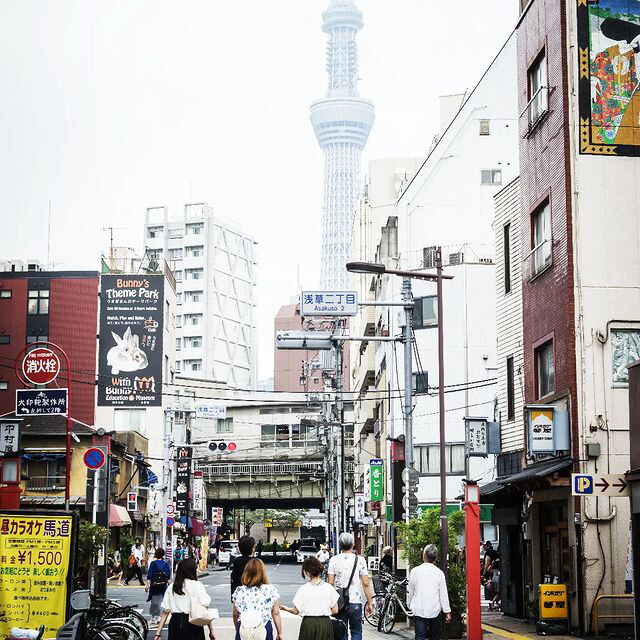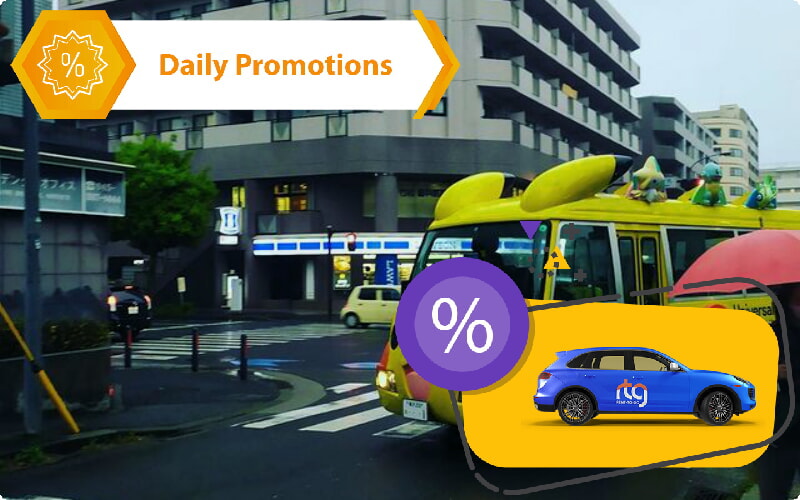 Up to
-35%
Up to
-35%
Hiring a car in Tokyo can be a convenient way to explore the city and its surrounding areas. However, there are several important factors to consider to ensure a smooth experience. Here’s a comprehensive guide to help you navigate the process.
Several well-known international and local car rental companies operate in Tokyo, including:
It’s advisable to compare prices and read reviews before making a reservation.
Ensure you understand the insurance coverage provided by the rental company. Additional insurance options may be available for extra protection. Be aware of potential extra costs such as fuel, tolls, and late return fees.
By keeping these points in mind, you can enjoy a hassle-free car hire experience in Tokyo, allowing you to explore the city and beyond at your own pace.

Tokyo offers a variety of electric cars for rent, catering to both eco-conscious travelers and those looking to experience the latest in automotive technology. Some popular electric car models available for rent include the Nissan Leaf, Tesla Model 3, and BMW i3.
These rates provide a general idea of the cost to rent an electric car in Tokyo, allowing visitors to plan their budget accordingly while enjoying the convenience and environmental benefits of electric vehicles.




One way car rental options in Tokyo offer great flexibility for travelers looking to explore Japan without the need to return to their starting point. Many rental companies provide this service, allowing you to pick up a car in Tokyo and drop it off in another city, such as Kyoto or Osaka.
Prices for one way rentals can vary depending on the distance and the rental company. On average, you can expect to pay an additional fee ranging from €50 to €150 for returning the car in a different city. For example, renting a compact car in Tokyo and dropping it off in Kyoto might cost around €100 extra, while a similar rental ending in Osaka could be approximately €120 extra.
It's advisable to check with multiple rental companies to compare rates and find the best deal for your travel plans. Some popular rental companies offering one way rentals in Japan include Toyota Rent a Car, Nippon Rent-A-Car, and Times Car Rental.

Booking your car rental well in advance is a simple yet highly effective strategy for saving money. This becomes even more crucial in tourist hotspots, where the demand for rental cars often surges during peak travel seasons. Reserving early allows you to secure a more economical rate and guarantees the availability of your preferred vehicle type.
In Tokyo, several car rental agencies provide "early-bird" discounts to those who reserve their vehicles weeks or even months before their intended rental period. These special rates can result in substantial savings, sometimes reducing the cost by 20% to 30% compared to standard pricing. Early booking becomes exceptionally advantageous if you're traveling during high-demand seasons when prices are prone to inflate.
Planning ahead not only saves you money but also offers the leeway to explore and compare rates among various providers. If you have flexible travel dates, you can align them with times when prices are more affordable, maximizing your savings even further.
To find the most competitive rates, we recommend using our website, r-tg.com. The platform consolidates pricing information from multiple suppliers, offering you a comprehensive source for comparison. Our site often highlights exclusive early-bird discounts and other promotional deals you won't easily find elsewhere, making it a valuable tool for securing the most cost-effective car rental in Tokyo.
One of the most effective ways to save money on car rentals is to shop around and compare rates from multiple suppliers in Tokyo. Not all rental agencies are created equal, and prices can vary significantly even for the same class of vehicle.
Suppose you're interested in renting a compact car, such as a Opel Corsa. Your first instinct might be to go with well-known suppliers like sixt or budget, but it's crucial to also consider lesser-known local agencies. These local suppliers might offer competitive rates to entice customers away from the bigger names.
For instance, a Opel Corsa at sixt in Tokyo might cost you €20 per day, including basic insurance. On the other hand, budget might offer the same model for €37 per day but with limited mileage. Upon further research, you might find a local agency offering the Opel Corsa for just €22 per day with unlimited mileage.
By taking the time to compare rates from multiple suppliers, you can find the best deal that meets your specific needs. Whether you prioritize lower daily rates, better insurance coverage, or additional perks like free GPS, comparing suppliers can help you make the most budget-friendly choice.
Leveraging discount codes can significantly reduce your car rental costs in Tokyo. This allows you to upgrade your car, extend the rental period, or simply save money. This isn't just a trick for deal-seekers; it's a common practice in the industry.
Various discounts are often available, from AAA membership perks to military family rates and even credit card-based offers. It pays to find out which ones you qualify for.
Discount codes are available through:
Read the fine print, as codes often come with conditions like blackout dates or restricted car types.
The prepaid fuel option may seem like a convenient choice at first glance. After all, who wants to rush to find a gas station right before returning a rental car? However, this convenience often comes at a premium, and refueling the car yourself can lead to significant savings.
When you choose the prepaid fuel option, you're essentially paying for a full tank of gas at the rates set by the rental company. This rate often includes a markup, making it more expensive than what you'd pay at a local gas station. Additionally, if you don't use the entire tank, you usually won't receive a refund for the unused fuel, leading to even more wastage.
It's wise to plan your refueling strategy in advance. Look up local gas stations near your drop-off location and check their rates using apps or websites. Some mobile apps even offer real-time gas price comparisons, allowing you to find the cheapest rates nearby.
If you're not planning to drive much during your rental period, you might end up returning the car with a nearly full tank, making the prepaid fuel option an even less economical choice. Always consider your driving itinerary and needs when making this decision.
While skipping the prepaid fuel option can save money, it may require extra time and planning on your part. Weigh the cost savings against the value of your time to determine if it's worth the effort.
In summary, while the prepaid fuel option offers convenience, it often does so at a higher price. By doing some quick math and planning your fuel stops, you can save money and ensure you're getting the best deal on your car rental.
Selecting an economy car can significantly reduce both your rental and fuel expenses, a key advantage for long trips or in high-cost fuel areas.
Lower rental rates and better fuel efficiency make economy cars a smart choice, particularly in crowded or space-limited areas.
An electric vehicle (EV) might have a higher rental rate but can offer fuel cost savings and is eco-friendly.
Renting an EV like the KIA E-Niro could essentially eliminate fuel costs with free charging stations.
In some places, EVs have access to carpool lanes, adding time-saving value.
To wrap it up, economy or electric cars offer a budget-friendly, eco-conscious choice. Always weigh rental and likely fuel expenses to make the best decision for your trip.
Many travel websites provide package deals that encompass flights, hotels, and car rentals. By combining these services, you can frequently secure substantial savings.
Reserving the cheapest, smallest car can be a smart strategy for securing a free upgrade, especially if you wouldn't mind a better vehicle.
Rental agencies often run out of economy cars, leading to free upgrades for those who booked them. You might get a midsize or even a sedan for the price of an economy car.
There's no guarantee, but the odds are better during busy seasons. You'll still save money if you end up with the small car.
Before choosing the rental company's insurance, review your own auto insurance policy to determine if it covers rentals. If it does, you can avoid the extra cost.
Car hire services in Tokyo frequently offer special deals, especially during holidays or off-peak times. To stay updated on these short-term offers, consider subscribing to their mailing lists or regularly checking their websites. They may also announce exclusive promotions on their social media channels.
Incorporating these tips into your travel plans can significantly increase your chances of securing an affordable car rental. In a city as dynamic as this, being a savvy consumer can make a substantial difference in optimizing your travel budget.
Don't overlook mileage limits in Tokyo car rentals; they can lead to unexpected fees.
Rental firms offer unlimited, daily, or total trip mileage plans. Choose wisely to avoid extra costs.
Exceeding the limit can cost between $0.25 and $0.75 per extra km.
Inquire about mileage policies when you pick up the car and negotiate better terms if possible.
Being savvy about mileage can keep your travel budget on track.